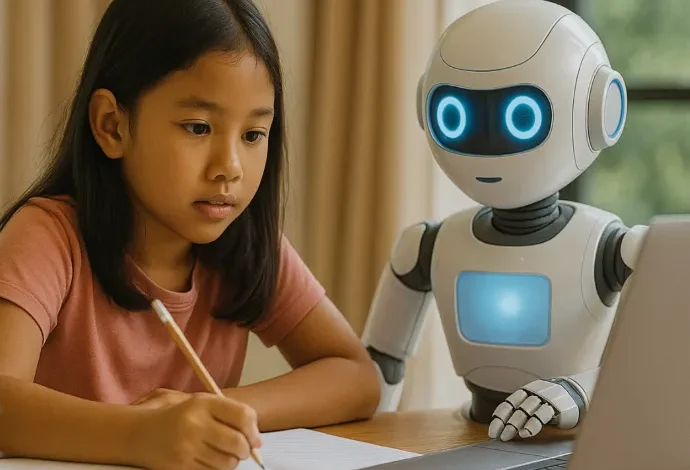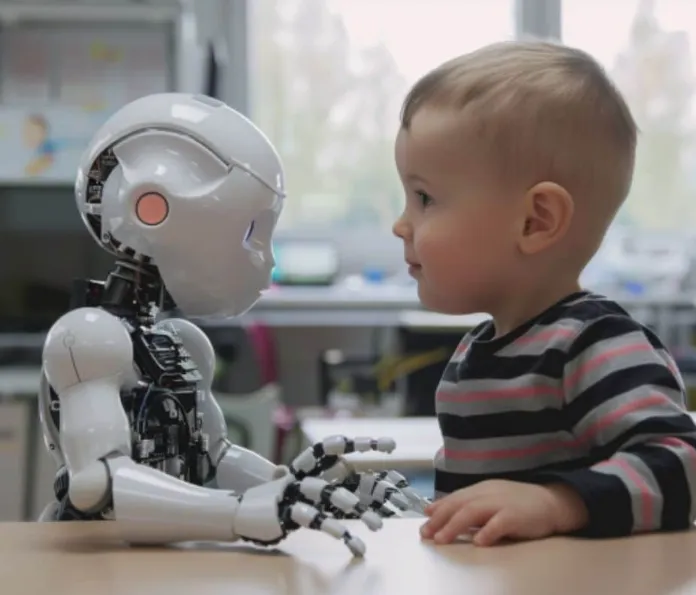Why Kids Need AI and Coding Skills as Core Literacy

When we think about basic education, subjects like reading, writing, and math usually come to mind. But in today’s world, those fundamentals are expanding. Artificial intelligence and coding are quickly becoming just as important, shaping how the next generation learns, works, and creates. For parents, the question isn’t whether kids should learn these skills—it’s how soon to start.
Understanding AI Literacy
AI literacy means more than knowing how to use a smart assistant. It’s about understanding what algorithms do, how they affect everyday life, and the role they play in decisions that impact us. Kids who grasp AI concepts can better recognize bias, think critically about digital ethics, and learn to interact with technology responsibly.
In the same way that reading empowers children to navigate the world, AI literacy equips them to question, analyze, and use emerging technologies with confidence.
What Coding Literacy Really Means
Coding is the language behind every digital tool we use. But its value goes beyond creating apps or games. Learning to code teaches kids how to break down problems, think logically, and experiment creatively. It builds persistence through trial and error while giving them the confidence to build, not just consume, technology.
Starting with block-based platforms like Scratch and moving up to languages like Python, kids can grow into creators who understand and shape the digital tools of tomorrow.
Why This Matters Now
- Technology is part of modern education
Schools are increasingly adding coding and AI topics into STEM programs. Children who start early are more likely to approach these subjects with confidence. - Being a digital native isn’t the same as digital literacy
While kids may know how to navigate apps, that doesn’t mean they understand how those apps work. Without exposure, they risk becoming passive users rather than creative problem-solvers. - Careers of the future demand it
According to global workforce studies, more than half of employees will need major digital upskilling. Jobs in AI and automation are growing across industries, not just in tech. - Early exposure builds transferable skills
Children introduced to coding and AI at a young age show stronger problem-solving, critical thinking, and adaptability across subjects—from math to language arts.
Everyday Examples of AI in Kids’ Lives
AI isn’t an abstract concept—it’s already shaping your child’s world:
- Personalized video recommendations
- Voice assistants like Siri or Alexa
- Autocomplete in search engines
- Language translation apps
- Adaptive learning platforms at school
Without some level of understanding, children grow up being influenced by these systems without realizing how they work.
How Parents Can Encourage AI and Coding Literacy
You don’t need a technical background to support your child. Small, consistent steps make a difference:
- Use age-appropriate platforms
- Ages 5–8: ScratchJr, CodeSpark
- Ages 8–12: Scratch, Tynker, Minecraft Education
- Ages 12+: Python, Unity, Arduino, Replit
- Talk about technology in context
Ask questions like, “Why do you think the app suggested that video?” These conversations encourage curiosity about how algorithms work. - Discuss ethics
Conversations about fairness, privacy, and the role of AI in society help kids grow into thoughtful digital citizens. - Encourage hands-on learning
Enroll them in coding clubs, online workshops, or local programs. Many communities offer beginner-friendly opportunities.
Not Just for “Tech Kids”
Even if your child isn’t interested in becoming a programmer, these skills are widely applicable. Artists use generative design tools, writers explore interactive storytelling, entrepreneurs build digital solutions, and problem-solvers automate tasks. AI and coding give kids a versatile toolkit that supports creativity in almost any field.
FAQs Parents Often Ask
What’s the right age to start?
Children as young as five can begin with simple coding games, while AI-related concepts like pattern recognition can be introduced in elementary school.
Do kids need hours every day?
Not at all. Even one or two hours a week of structured exploration can spark lasting interest.
Is a computer required?
Tablets and phones work for many beginner tools, but a laptop will eventually give them more flexibility.
How do I keep it engaging?
Start with fun, game-like platforms. Focus on progress and creativity rather than perfection.
A Shift Parents Can’t Ignore
Literacy in the digital age is no longer limited to books and numbers—it now includes the ability to understand and shape the technologies we use daily. AI and coding literacy are the new basics, preparing kids not just for future jobs, but for thoughtful participation in a tech-driven society.
As parents, we don’t need to master these skills ourselves. Our role is to open doors, encourage curiosity, and help our children grow confident in navigating the digital world. The earlier we start, the more prepared they’ll be for the opportunities ahead.







